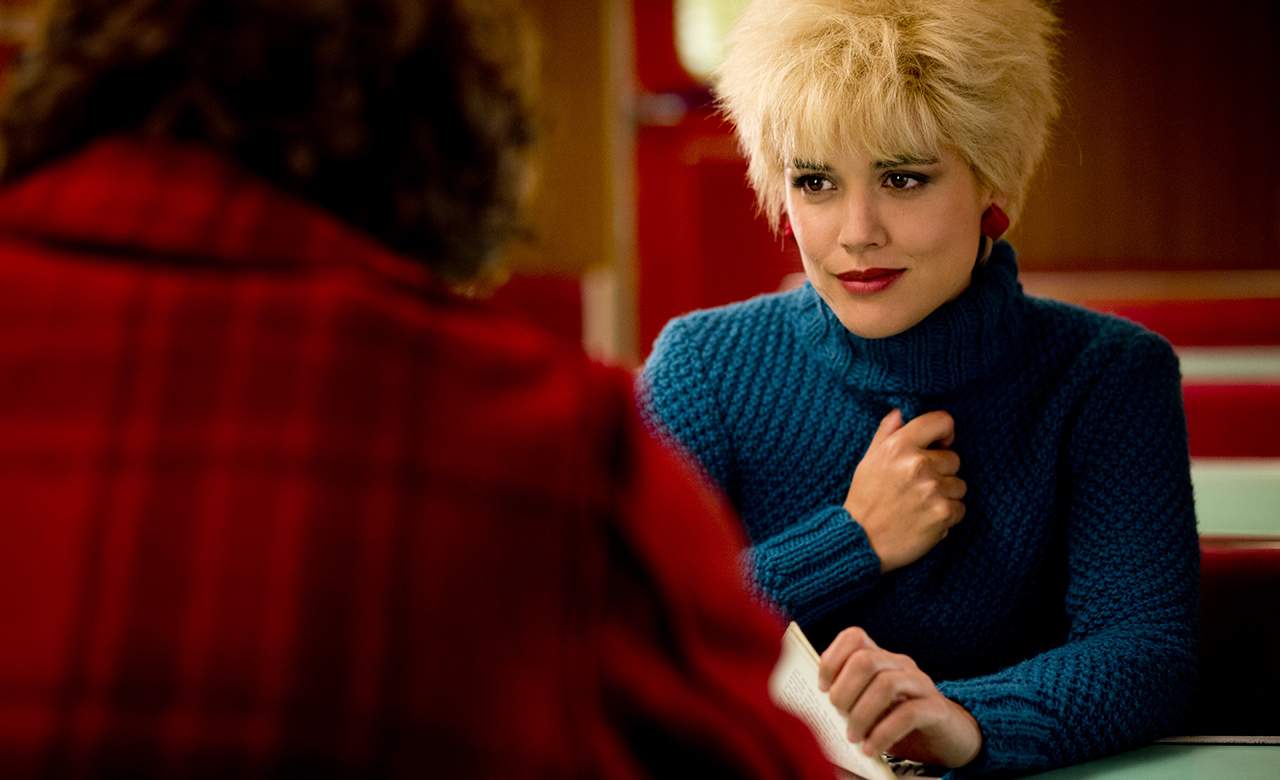Julieta
The latest in a long line of women-centric stories from the masterful Pedro Almodóvar.
Overview
As Pedro Almodóvar sees it, every aspect of life is filled with emotion and mystery. Sentiment and suspense ooze through his movies – although it's not just his narratives that inspire intrigue, or speak volumes about desire, loss, longing and guilt. With a command of style that matches his storytelling abilities, each shade of colour, each textured surface, each intimate close-up and each patient pause reveals and teases, too. The writer-director asks audiences to do more than watch; he wants viewers of his films to probe, to question and — above all else — to feel.
It's little wonder, then, that Almodóvar's career has been built upon affairs of the heart and matters weighing on the mind, with his twentieth feature sticking to familiar territory. After sky-high camp comedy misfire I'm So Excited, Julieta unpacks the life of its eponymous figure with hints of the darkness that made the horror-tinged The Skin I Live In so thrilling, and with ample doses of the contemplation and inner drama that have served the Spanish filmmaker so well.
First glimpsed in middle age, Julieta (Emma Suárez) is preparing to leave Madrid with her boyfriend (Darío Grandinetti) when she crosses paths with an old friend of her now-estranged daughter. Memories of other times swirl up, derailing her plans and motivating a move into a building the two inhabited years earlier. There, as she comes as close as she can to living in the past, she puts pen to paper to recount her tale. The film brings her recollections to the screen, as a younger Julieta (Adriana Ugarte) meets fisherman Xoan (Daniel Grao) on a train, settles in a seaside village, and forges a happy but short-lived existence.
Complex relationships, contentment stolen away by a painful fate, and previous tragedies colouring future decisions – yes, Julieta proves a classic Almodóvar effort through and through, as it fuses three separate short stories from Alice Munro's 2004 book Runaway into one vivid and involving whole. Of course, from the moment the movie opens with the sight of the red fabric of one of Julieta's dresses, its visuals fall into the same category. And while there's little about Julieta that challenges its director or will surprise his fans, it still offers an evocative example of a craftsman doing what he does well.
That Julieta largely unravels as expected in both its narrative and in Almodóvar's approach doesn't dampen its vibrancy. Indeed, appearing to so closely follow his own formula might just be by design. That increasingly seems the case whenever the film's performances capture attention, with both Suárez and Ugarte demonstrating devastating nuance. Not only do they provide two different takes on the titular character, but, in the process, they also represent the present and past of Almodóvar's long line of on-screen women. He's long been recognised for exploring female-centric stories and drawing potent performances out of his actresses. As he lets his two leads energise and complicate the film as necessary, he showcases their talent as well as the quiet evolution of his various heroines.





